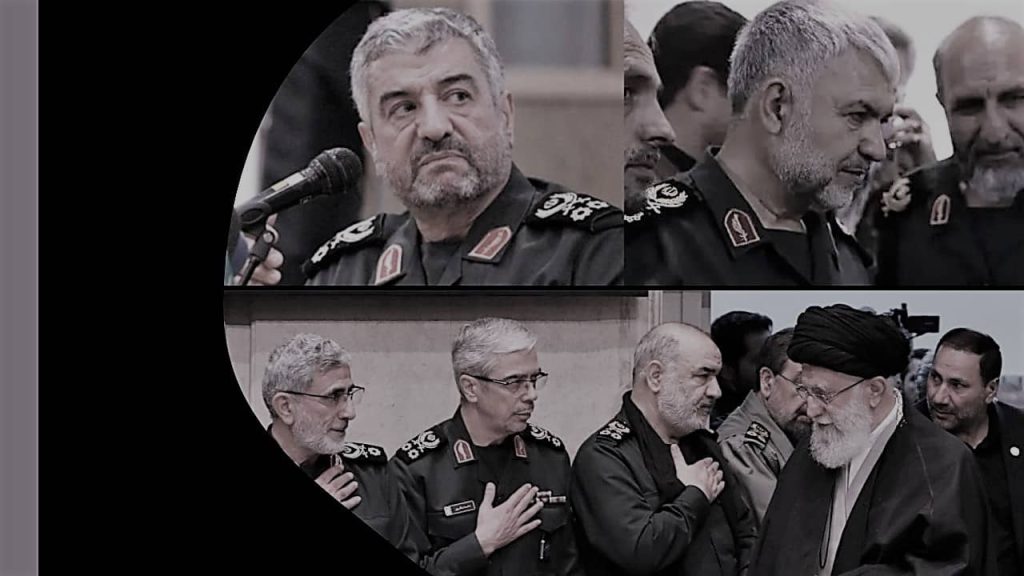
In a recent leaked audio file of a discussion that took place in 2018 between Mohammad Ali Jafari, the former commander-in-chief of the Islamic Revolutionary Guard Corps (IRGC), and his economy deputy Sadegh Zolghadrnia, the extent of the financial corruption within the Iranian regime has come to light. Due to the damning revelations, the regime has been forced to confirm the authenticity of the file.
In the week since the audio file was leaked to the public, the regime initially tried to use their usual method of denying allegations, claiming the file was fake or had been doctored, until it became apparent that the file was genuine.
According to the Keyhan media outlet, who are heavily affiliated with the regime’s Supreme Leader Ali Khamenei, they claimed in their February 14 publication that the leaked file proved “the level of responsibility and accountability of Revolutionary Guards’ officials.”
The People’s Mojahedin Organization of Iran (PMOI/MEK) said, “Even though corruption among high-ranking officials is among the regime’s worst-kept secrets, the new information is surprising and sheds light on aspects of state-run corruption and embezzlement that dwarf the previously known facts.”
The state-run Sharq daily spoke to an expert on February 13 who stated that the value of the assets of the Tehran municipality was worth $2 trillion around the time of the discussion heard on the audio file. At the time, those assets were in full control of the Rasatejarat company, a subsidiary company of the IRGC’s Yas Holding company.
Those working within civil service roles in Tehran, and other municipalities, are practically given free rein to embezzle the country’s wealth in any way they wish. With the IRGC in control over most of Iran’s economy, the revelations from the mouths of some of their top officials have come as no surprise.
Among these revelations, it was discovered that the Rasatejarat company already had a 60 trillion rial debt to the Tehran municipality. In regards to the financial resources that were handed over to the IRGC, documents showed that they had received 129 trillion rials, 97 trillion rials of which were reportedly embezzled to unknown sources.
The MEK said, “What is more surprising is that this significant scandal has been dismissed by regime officials as being normal. There is no indication of judicial investigation, not even a suggestion of a probe. The only worries expressed by officials and media are the security aspects of the audio file and how such information was leaked.”
The managing editor of Keyhan, Hossein Shariatmadari attempted to minimise the facts uncovered in the audio file, questioning what was wrong with the revelations that had come to light, before stating, “Qassem Soleimani was receiving a share [of the revenue] for the Quds force, and what did he spend it on?”
Corruption is greatly embedded at the heart of the Iranian regime. Their response to the uncovering of their misdeeds completely sets them apart from other countries around the world. In other governments, cases of inside corruption are dealt with seriously, and they often result in the major reshuffling of government bodies, and perpetrators are discarded from their seat of power. In Iran, however, this is not the case. The regime’s cases of corruption simply drive them forward and keep them clinging to power.
The MEK said, “But the regime’s nonchalant reaction to these extraordinary corruption and embezzlement cases is not an indication of stability and strength. Just as corruption eats any living organ from inside, it has weakened the regime to the point that it can no longer fight the infection and has surrendered to its infestation.”